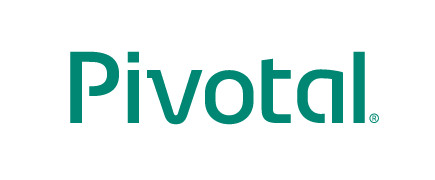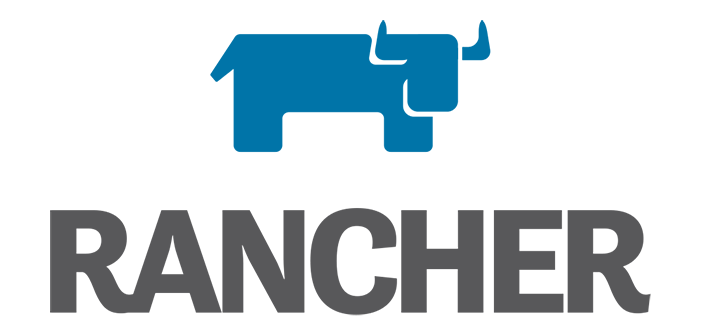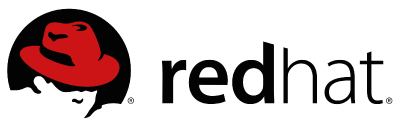PARIS CONTAINER DAY
This day is dedicated to the containers ecosystem and its good practices. We expect professional developers passionate but also contractors and IT service managers.
Seconde edition
Paris Container Day is the first container conference in France, focusing on best practices and the ecosystem. This year, the main theme will be “Containers in production”.
Keynotes and Workshops
Keynotes presented by the major market players containers and workshops to discover and practice different technologies.
Internationally renowned speakers
We have brought renowned international speakers who represent the current major players in the ecosystem containers.
2017 Speakers
2017 Program

08:30 - 09:30
Accueil et petit déjeuner
1h
Jessie Frazelle
Security in a containerized world – Google
Tout le monde est d'accord pour dire que la sécurité est importante, mais en réalité, elle est souvent mise de côté jusqu'à la fin. Et lorsque que quelqu'un pense enfin à la sécurité, de nombreuses décisions individuelles prises au fur du temps rendent votre infrastructure beaucoup plus difficile à sécuriser. Toutes les applications ont des vulnérabilités (connues ou non). Une bonne pratique consiste à utiliser une sandbox pour limiter la surface d'attaque. Nous allons examiner de manière pratique un panorama de la sécurité défensive dans notre monde conteneurisé. Comment les conteneurs aident-ils à sécuriser les applications ? Quelles sont les contraintes liées aux conteneurs en fonction du niveau de sécurité qu'ils fournissent ? Quels outils sont disponibles aujourd'hui pour simplifier la mise en place d'une sandbox pour vos applications? Vous aurez la possibilité de prendre de meilleures décisions en matière de sécurité des applications pour votre infrastructure en production.
30mins
Jessie Frazelle
10:00 - 10:30
ean-Laurent de Morlhon
Docker
30mins
ean-Laurent de Morlhon
10:30 - 11:00
Jason Hansen
Your CI Pipeline is the Platform – Microsoft
30mins
Jason Hansen
11:00 - 11:20
Pause
20mins
Akram Ben Aissi & Eloïse Faure
REX : OpenShift en production : 7 pièges à éviter – Red Hat
OpenShift est une solution de PaaS et de gestion de container basée sur docker et kubernetes. Le PaaS simplifie les déploiements, mais qu'en est-il du déploiement du PaaS lui-même ? Au travers de cette session, vous obtiendrez un retour d'expérience autour de 7 problématiques courantes rencontrées lors du déploiement d'OpenShift en production: De la configuration système, à celle des middleware et en passant par le monitoring, deux consultants Red Hat vous parlerons sans langue de bois, ni gueule de bois, des soucis et des astuces du quotidien pour gérer plus sereinement vos clusters OpenShift.
50mins
Akram Ben Aissi & Eloïse Faure
Simon Lallemand
Take a BlaBlaCar to the stars with rkt (REX) BlaBlaCar
50mins
Simon Lallemand
13:00 - 14:00
Déjeuner
1h
14:00 - 14:30
Ori Pekelman
There is no container – Platform.sh
Nous approfondirons la réalité de ce qui matérialise réellement un conteneur : qu'est-ce que la conteneurisation ? Comment cela fonctionne ? Nous prendrons le postulat que les conteneurs peuvent être décrits sous deux angles de vue différents : en tant que contrat qui définit comment un élément d'un système informatique s'intègre dans un système plus large, et en tant que mécanisme technique qui modifie la manière dont les processus s'exécutent. Nous examinerons ces deux aspects. Et plus précisément, quel est ce contrat et quelles sont ses sémantiques ? Comment ce contrat est-il mis en oeuvre ? Et nous vous montrerons comment la compréhension de ce qu'est un conteneur peut radicalement changer la façon dont vous les utilisez et comment cela peut faire une énorme différence dans la taille d’un service ainsi que dans le coût de leur exécution sur du long terme.
30mins
Ori Pekelman
Max Inden
End-to-end monitoring with the Prometheus Operator – CoreOS
Kubernetes est un système puissant pour construire et exploiter une infrastructure moderne en cloud-native . Le suivi avec Prometheus garantit que Kubernetes reste en bonne santé. Prometheus est une application officielle, donc l'exploitation dans un environnement natif en cloud-native peut être une tâche difficile. L'opérateur Prometheus exécute très bien des clusters Prometheus, même un entier end to end monitoring pipeline, facilement gérable. Max expliquera la fonctionnalité de l'opérateur Prometheus et décrira une end-to-end monitoring stack, incluant les alertes et les tableaux de bord.
30mins
Max Inden
Downtime is not an option – How DC/OS keeps apps running – Mesosphere
Congratulations, your app is deployed to production and running! But wait, how do you ensure it stays running? There will be node failures, network failures, software bugs, and updates trying to prevent this. This talk will explore how DC/OS is both robust and self-healing, and how DC/OS keeps your application available despite such failures, application updates and varying workloads. Many talks and tutorials show how to deploy an application onto a cluster system, but don’t talk about the “morning after”, which is about keeping and maintaining that application in production. There are a number of challenges involved, including: - System failures - System upgrades - Application failures - Zero-downtime application updates - Varying workloads We will discuss the following topics: - How to keep the system running despite unreliable infrastructure - How we can update DC/OS - How DC/OS keeps applications up and running - How we can update applications with new versions and configurations
30mins
Nic Jackson
Living the Nomadic life – HashiCorp
Nomad is a highly available and distributed scheduler supporting virtualized, containerized and standalone applications. Designed to run across multiple data centers and even multiple cloud providers, this talk will examine Nomad's major features and demonstrate how a Nomad cluster can easily handle a cloud provider outage.
30mins
Nic Jackson
16h00
Pause
20mins
Romain Meunier
LinkerD et Kubernetes – Vente-privée
50mins
Romain Meunier
Bastien Cadiot
Nomad, l’orchestration made in HashiCorp – WeScale
Les conteneurs s’imposent de plus en plus dans notre quotidien. Mais au-delà des démos et des tests, comment réussir le passage à l’échelle et en production ? Les idées reçues persistent : Déployer et gérer une infrastructure à base de conteneurs est quelque chose de compliqué. Créer une application sur ce type d’infra ça ne s’improvise pas. Le déroulement des opérations de mises à jour n’est pas toujours intuitif. Il faut toujours faire un choix entre Cloud public ou privé ? Linux ou Windows ? Batch ou Services ? Le multi-cloud et multi-région reste un objectif complexe à mettre en oeuvre. Nous verrons comment l’orchestrateur Nomad et son intégration dans la suite HashiCorp peut vous donner une vue différente sur ce que doit être votre plateforme de conteneurs en production.
50mins
Bastien Cadiot
Jonathan Raffre & Jean-Pascal Thiery
Monitoring et métrologie pour les containers – Xebia
Les équipes de développement s’oriente de plus en plus vers des architectures orientés conteneurs. Une fois les POCs validé, il faut songer à la mise en production de ces solutions. Jonathan est administrateur systéme, il a mis en place et exploité des solutions containeurisées dont certaines architectures dite ‘star wars’ (cf Devoxx 2015). Jean-Pascal est développeur backend, il a développé Kodo Kojo, une solution de provionning d’usine logiciel fortement basé sur des containeurs. Au cours de cette présentation, ils vont vous présenter les solutions permettant de connaitre l’état de vos cluster de containeurs à un instant t.
50mins
Jonathan Raffre & Jean-Pascal Thiery
18h50
Clôture
40mins
11:20 - 12:10
Justin Cormack
Bringing containers to production with LinuxKit – Docker
LinuxKit is a newly open sourced project to allow building custom secure, lean and portable Linux systems from containers. It came from an internal project at Docker to build a Linux core for running on every platform that Docker supports, from cloud platforms such as AWS, Azure and GCP, to the desktop platforms. Combined with cluster management tools such as InfraKit it brings the ease of use of containers to the low level operating system level of infrastructure. It also allows new security technologies to be easily tested and rolled out to production. Designed around the immutable infrastructure, it is built for modern DevOps processes.
50mins
Justin Cormack
12:10 - 13:00
Emile Vauge
Make load-balancing great again with Træfik – Containous
How to effectively manage inbound network traffic in your container based infrastructure? This talk will be a deep dive into Traefik, a modern reverse-proxy and load balancer made to deploy microservices with ease. You will get a lot of demos with Docker, Let’s Encrypt and Kubernetes.
50mins
Emile Vauge
Advanced container scheduling on Amazon ECS with Blox – AWS
lox is a new open source project launched by AWS that allow developers to write custom scheduling policies for Amazon ECS. Blox includes a service that consumes the event stream coming from a Docker cluster. It uses it to track the state of the cluster makes the state accessible via a set of REST APIs. Blox also includes a daemon scheduler that runs one copy of a task on each container instance in a cluster. In technical session, we’ll explain how the architecture works and of course, we’ll go through a full demo, from launching a cluster to scheduling containers with the daemon scheduler.
50mins
Claudia Beresford & Tiago Scolari
Production FS: Adapt or Die – Pivotal
What makes a good production filesystem for containers? The answer to this question changes as often as the technologies, requirements and priorities do. Since 2011, before containers were containers, CloudFoundry has been coming up with groundbreaking new methods of dealing with processes and isolation in production. Over the last five years, different filesystems were used as the underlying structure for what now are called containers, to meet every new demand as they appeared. In this talk Tiago and Claudia will discuss the pros and cons of each adopted filesystem, pointing out the reasons for each pivot and the lessons learned in the process. Starting with AUFS in Warden “containers”, through turbulent experiences with BTRFS, finally they will demonstrate CloudFoundry’s current reliable and more maintainable solution using Overlay+XFS.
50mins
Claudia Beresford & Tiago Scolari
Carlos Sanchez
Using Containers for Continuous Integration and Continuous Delivery – CloudBees
Building and testing is a great use case for containers, both due to the dynamic and isolation aspects, but it increases complexity when scaling to multiple nodes and clusters. However, the Kubernetes project provides a container orchestration solution that greatly simplifies app deployments in large clusters, and allows to dynamically run any containerized workload. Jenkins is an example of an application that can take advantage of such technology to run Continuous Integration and Continuous Delivery workloads. The Jenkins Kubernetes plugin can transparently use on demand containers to run build agents and jobs, and isolate job execution. It also supports CI/CD-as-code using Jenkins Pipelines. The presentation will allow a better understanding of Kubernetes, and how to use Jenkins on Kubernetes for container based large scale, showing also the challenges of running distributed applications (particularly JVM apps).
50mins
Carlos Sanchez
6
KEYNOTES
10
WORKSHOPS & CASE STUDIES
400
ATTENDEES
Venue of the event
New Cap Event Center














